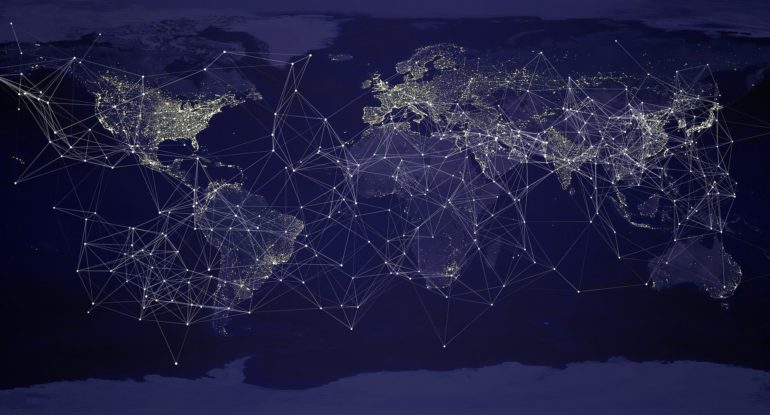The World Economic Forum Releases Blockchain Toolkit!

The World Economic Forum (W.E.F.) is a Non-governmental organization (N.G.O.) founded in 1971. The organization is “committed to improving the state of the world by engaging business, political, academic, and other leaders of society to shape global, regional, and industry agendas.” It is a membership-based organization, and membership is made up of the world’s biggest corporations.
The W.E.F. lately issued a Blockchain Deployment Toolkit, which is characterized as “a first-of-its-kind set of high-level guidelines documenting tested best practices to address the issues that arise in blockchain implementation projects.” The Toolkit was declared on the 28th of April 2020 and is now accessible as a widget on the W.E.F. website.
The Toolkit includes checklists, guides, risk assessment calculators, and decision trees for supply chain businesses to utilize when making decisions about safely using blockchain technology,
Two Pilot programs for utilizing the Toolkit have already been led. The first was in partnership with the Abu Dhabi Digital Authority (ADDA) of the U.A.E. ADDA applied toolkit questions when creating the Centre for the Fourth Industrial Revolution U.A.E. (C4IR UAE). The U.A.E. intends to make 50% of all federal payments blockchain-based by 2021.
The Second pilot was worked with Saudi Aramco. The Oil giant used the Toolkit to run blockchain-based supplier management and credential verification system. Data in the Toolkit supported Saudi Aramco speed up processing and build fraud detection systems.
The report records that “Organisations are starting to understand the disruptive potential of blockchain to solve pain points and provide increased efficiency, automation and transparency across supply chains.” And that, “blockchain is the ultimate networked technology.”
The Toolkit includes various Modules, covering Consortium Formation, Consortium governance, Digital Identity, and Interoperability. It intends to perform as a guide for executing blockchain into each of these supply chain features.
The release of the Toolkit is a straightforward response to economic chaos generated by the spread of the COVID-19 virus. As global customer requirement has plummeted, global supply chains have also struggled. A key problem is discovering ways to digitize or operate without face-to-face contact.
The Toolkit targets explicitly ineffective global ports and shipping systems. An industry where incentives usually direct parties to operate in their self-interest. According to the W.E.F., the antiquated operations of world shipping have pointed to “consequences or downstream effects on other parties on the system as a whole. The result is a fractured system that leaves behind parts of the sector while capturing economic efficiency gains for certain actors.”
The industry still depends on paper bills of lading and phone calls to verify shipments. The system also requires maintenance, with old records demanding audits and coordination between recordkeepers constantly breaking down.
The report examines the difficulty of data sharing among suppliers as well. Currently, if an international exporter wants to see data on goods he sources internationally, he likely requires to spend a large sum, separate from his goods payment.
The Blockchain toolkit recommends a connected blockchain-based system for products, and data exchanged among international suppliers is more effective. The blockchain can produce transparent and secure data networks. The blockchain can also assist credit networks utilizing smart contracts enabling exporters at much lower prices.
One of the toolkits’ principal authors, Nadia Hewett, recommends the blockchain is not a silver bullet but has many beneficial features. Hewett indicates the current difficulty of scammers convincing individuals and medical centers to waste emergency funds on artificial masks. A blockchain-based system would have had immutability and transparency to disincentivize would-be scammers.
Add a comment
You must be logged in to post a comment.




























































